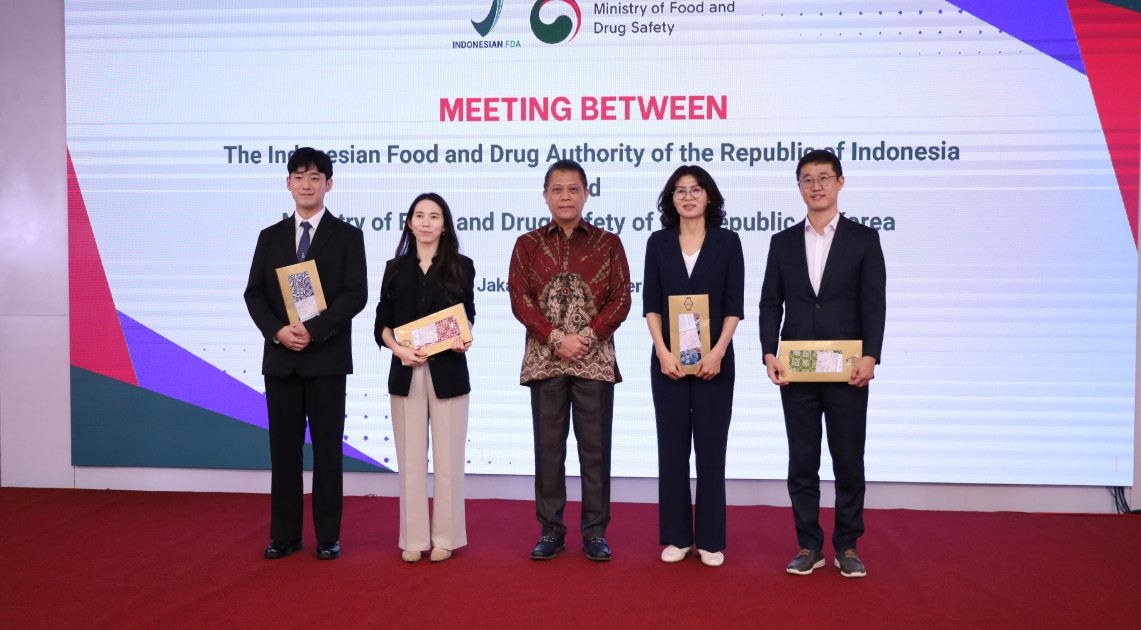On December 4, 2024, the Indonesian National Agency of Drug and Food Control (BPOM) hosted a pivotal meeting with Korea's Ministry of Food and Drug Safety (MFDS) at its Jakarta office. This strategic dialogue involved key stakeholders, including representatives from the Indonesian Attorney General’s Office, National Narcotics Board (BNN), and Directorate General of Customs and Excise. The event emphasized strengthening bilateral collaboration to address increasingly complex challenges in food and drug crimes, particularly those leveraging digital platforms.
Building Effective Regulatory Frameworks
In his opening remarks, Young Jo Kim, Director of Criminal Investigations at MFDS, highlighted the importance of shared knowledge and mutual cooperation between the two nations. He emphasized that such collaborations could significantly enhance public trust in food and drug safety, benefiting the broader community. Echoing these sentiments, Azis Saputra, Director of BPOM’s Food and Drug Investigation Division, stressed the role of benchmarking in improving BPOM’s operational capacity.
The meeting underscored innovative approaches, including the adoption of Korea's Narcotics Information Management System (NIMS). This system provides real-time surveillance of narcotics, effectively curbing misuse through stringent monitoring and administrative actions. BPOM expressed interest in integrating similar technological solutions into Indonesia’s regulatory frameworks, especially for programs like free nutritious meal initiatives (MBG).
Digital Crime and Regional Cooperation
The discussion also addressed the growing sophistication of digital crimes in the food and drug sectors. Both parties identified a pressing need for early-warning systems and rapid response mechanisms to tackle cyber-enabled illegal activities. Korea’s experience in leveraging data analytics to identify anomalies in narcotics prescriptions stood out as a model for BPOM.
BPOM further proposed establishing a regional forum involving Asian regulatory authorities. Such a platform would facilitate regular discussions on transnational food and drug crimes, fostering deeper collaboration on surveillance, enforcement, and knowledge exchange.
Strategic Outcomes
The meeting yielded several actionable outcomes, including plans for technical workshops, joint investigations, and the development of shared guidelines on food and drug safety. MFDS also offered to provide training on epidemiological investigations to enhance BPOM’s capacity to manage risks associated with public health programs like MBG.
The collaboration reflects a growing consensus among Asian regulators on the need for unified efforts to safeguard food and drug security. With increasing cross-border threats, initiatives like these are expected to improve enforcement effectiveness and build resilience against emerging challenges.
A Vision for the Future
The Indonesia-Korea partnership exemplifies a proactive approach to addressing global food and drug safety issues. By combining regulatory innovation with international cooperation, both nations aim to set a benchmark for regional and global standards. This initiative aligns with Indonesia’s commitment to reinforcing public health systems through strategic alliances, promising significant improvements in food and drug safety.
Read More






 Monday, 05-01-26
Monday, 05-01-26







